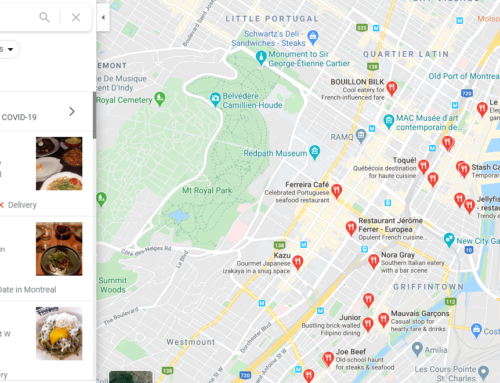In recent history, Google’s iterations of search engine algorithm updates have prioritized websites that enhance content relevancy. Meaning, that Search Engine Optimization (SEO) administrators and technicians have had to ensure that the words on their website are REALLY contextually the same to the words they hope to show up first in searches. There is certainly more complexity to it than simply this, but the point is that Google has been trying to push their algorithm to rank such sites higher than ones who have less of the same words and synonyms and related words. For example, if a website sells hammers, having the words “hammer, hammers, nail, etc” repeatedly on the pages will increase the ranking. Obviously this can be manipulated in uncountable ways.
This latest iteration of their algorithm is significantly different. For the aforementioned reasons of perceived manipulation, and for other reasons, both guessable and inscrutable, Google will start prioritizing a new ranking signal focused purely on mobile site speed, as of July 1st 2018. Even though desktop website speed has been a ranking factor for almost eight years, Google will include just now mobile sites in the ranking equation.
Google recommends the use the new updated PageSpeed report and tools like LightHouse to measure page speeds and make improvements. Since the announcement it appears to be some confusion on Twitter and SEO blogs around the PageSpeed Update and whether it will impact indexing.
We can answer this for you: It won’t. Because indexing and ranking are two separate things.
Being indexed means that a site is listed inside Google. But that has no impact whatsoever on the cardinality of the ranking it will be given for any given search term. The top listed site and the site on page 483 are equally “indexed”. Purely it means that Google knows that your site exists, and it has it cataloged in their search engine.
Therefore, the meaning of “being ranked” is now clear. It means that your website is listed in Google for keywords associated to your content, with a specific ranking. And obviously, it is what is important. Being ranked means that you have the chance to have people visit your site through various keyword searches.
In deeply technical news, Google has also released the new Search Console that includes: Index Coverage, AMP (accelerated mobile pages) status, Job posting reports and more in-depth data, including clicks, impressions, CTRs, average ranking position, and current position, and will feed up to 16 months of back-dated data.
Index Coverage report automatically alerts when there’s an indexing error and can help trace the root of the problem. The AMP status will allow monitoring of the AMP performance, including how pages are displayed and if any errors are coming up. Google has confirmed it will use the AMP speed and not the canonical URL when determining the on-page speed for rankings.
There is still much more to the algorithm than just speed. Strong SEO practices are still fundamental.
Highly relevant on-page content makes up 5% of Google’s algorithm for ranking organic search results while the remaining 95% are off-page methods such as credible, relevant websites linking back to your brand. Without a sound off-page SEO strategy, businesses won’t rank for any keywords with commercial intent. Google has announced that this update will only affect a “very small” amount of businesses, and even then, it would only be the “super slow” sites.
Just how slow is too slow remains an unknown.
[In Partnership With moosepaper.com]





